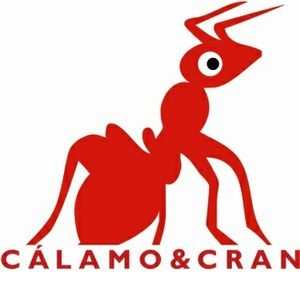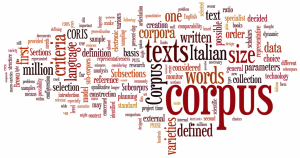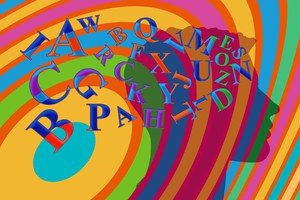Training courses, meetings and seminars
Teaching staff coordinator: Prof. Carmen Varo Varo
INTRODUCTION OF DESIGN OF EXPERIMENTAL STUDIES OF THE LANGUAGE THROUGH ELECTROENCEPHALOGRAPHY
Place: ILA, Cadiz.
Date: 26th and 27th April 2022
Organizers: Carmen Varo Varo
Contents of the course:
26th April
- E-Prime Software presentation.
- Interface explication.
- Experiment design.
- Group activity.
27th April
- Brain Vision Software presentation.
- Register of electrical activity with Brain Recorder programme.
- Detection and correction of artefacts.
- Independent component analysis (ICA).
- Event-related Potential analysis (ERPs).
- Frequency analysis (FFT).
- Time-frequency analysis (wavelets, ERD/ERS…).
TRAINING COURSE “TRAINING IN EXPERIMENTAL METHODS: EYE TRACKING (TOBII PRO SPECTRUM)”
Place: ILA, Cadiz.
Date: 1st July 2021.
Organizers: Carmen Varo Varo.
Instructor: Kirill Novikov (Technical and Scientific Support Engineer at Tobii Pro).
Content of the course:
- Tobii Pro Spectrum hardware and software installation.
- Introduction of eye tracking technique.
- Practical formation in the use of Tobii Pro Spectrum hardware and software.
ONLINE COURSE “VIRTUAL REALITY AND PARKINSON DISEASE: TECNOLOGICAL APPLICATIONS OF THE MOTOR AND VERBAL REHABILITATION OF AFFECTED PATIENTS”
Place: Cadiz.
Date: 19th, 20th and 21st April 2021.
Organizers: Mª Jesus Paredes Duarte and Antonio Ruiz Castellanos
Speakers:
- Adolfo M. García (Cognitive Neuroscience Center, San Andrés University & CONICET; Argentina; Global Brain Health Institute, University of California, San Francisco, United States), “On the trail of Parkinson’s, with a linguistic lens” (“Tras las pistas del Parkinson, con lupa lingüística”).
- José Miguel Mota Macías y Rubén Baena Pérez (College of Engineering, University of Cadiz), “Authoric tools for Virtual Reality” (“Herramientas de autoría para la Realidad Virtual”) (VIDEO).
- Raúl Espinosa Rosso (UGC of Neurology of Puerta del Mar University Hospital of Cadiz), “No motor symptoms of Parkinson: the far side of the Moon” (“Síntomas no motores de la enfermedad de Parkinson: La cara oculta de la luna”) (VIDEO).
- Álvaro Martínez (Evolv Enterprise), “Use of Virtual Reality and Gamiphication for neuro-rehabilitation – current Technology and clinic experiences” (“Utilización de la Realidad Virtual y Gamificación para la neurorrehabilitation – Tecnología actual y experiencias clínicas” (VIDEO).
- Víctor Manuel Martín Sánchez (Doctoral candidate of the University of Cadiz), “Evolution of communicative skills of Parkinson patients through linguistic tests” (“La evaluación de destrezas comunicativas en pacientes de párkinson a través de los tests lingüísticos” (VIDEO).
SPECIALISED TRAINING COURSE ABOUT LENGUAGE AND COGNITION
Place: University Institute of Investigation in Applied Linguistics (ILA), Cadiz.
Date: from 22nd to 24th January 2019 (12 hours of duration).
Organizers: Mª Jesús Paredes Duarte and Carmen Varo Varo.
Taught by: Guest Professor Luis Martínez of the University of Talca (Chile).
SPECIALISED TRAINING COURSE ABOUT SPANISH SIGN LANGUAGE
Place: University Institute of Investigation in Applied Linguistics (ILA), Cadiz.
Date: 5th July 2018 (4 hours of duration).
Organizers: Mª Jesús Paredes Duarte.
Taught by: sign language interpreter Gema Díaz Torres.
SPECIALISED TRAINING COURSE IN CLINIC LINGUISTICS
Place: University Institute of Investigation in Applied Linguistics (ILA), Cadiz.
Date: from 29th January to 5th February 2018.
Organizers: Mª Jesús Paredes Duarte and Carmen Varo Varo.
Speakers:
- Raúl Espinosa Rosso (manager of UGC of Neurology of Puerta del Mar University Hospital of Cadiz).
- Carmen Castillo Requena (speech therapist of Puerto Real- Cadiz University Hospital).
- Berenice Domínguez Cabrera (Linguistic-logopedic service of UCA).
- José Miguel Mota (College of Engineering of UCA).
- Javier González de la Rosa (INIBICA of the University of Cadiz).
The main objective of the course is to provide the necessary training to be able to dedicate yourself professionally to proofreading in publishing houses, newspapers, magazines, communication agencies…
To this end, it offers a broad vision of the work carried out in the correction process, while studying and reviewing a large number of aspects related to grammar and spelling, the use of the different typographic resources used in the composition of texts and the methodology used in the different areas of correction.
Date: 25-29 September 2017.
Coordinators: Bárbara Eizaga Rebollar and Luis Escoriza Morera.

calamo&cran
CORPUS LINGUISTICS COURSE

- Desktop tools with own corpus (AntConc).
- Tools and Methodologies II: lematized researches, use of stopwords.
- Keyword extraction from a specialised corpus.
- Text collecting.
- Manipulation of the text through regular expressions.
- Morphological labelling of a corpus.
- Annotation of corpus in XML for distribution.
SPECIALISED TRAINING COURSE IN CLINICAL LINGUISTICS
- Knowledge of the neurological and genetic aspects of language.
- Introduction to new technologies applicable to the study of Clinical Linguistics.
- Knowledge of the main methods of language assessment and rehabilitation.
- Date: 29th January-2nd February 2018.

THE XIV MASTER’S DEGREE IN AUDIOVISUAL TRANSLATION: LOCALISATION, SUBTITLING AND DUBBING. MASTER’S DEGREE FROM THE UNIVERSITY OF CÁDIZ ORGANIZED BY THE INSTITUTO SUPERIOR DE ESTUDIOS LINGÜÍSTICOS Y TRADUCCIÓN (ISTRAD) AND THE INSTITUTE OF APPLIED LINGUISTICS (ILA) OF THE UNIVERSITY OF CÁDIZ.
The main objectives of the XIV Master’s Degree in Audiovisual Translation: Localisation, Subtitling and Dubbing are the following:
- To offer university graduates detailed and specific training in translation techniques applied to subtitling related to the translation process itself and using the most relevant software.
- To offer university graduates detailed and specific training in translation techniques applied to dubbing in films related to the stages of translation, lip synchronization and the subsequent recording process.
- To offer university graduates detailed and specific training in subtitling techniques for the hard of hearing and how to use the most important software to do this.
- To offer university graduates detailed and specific training in audio description techniques for the blind related to script writing and how to use the most relevant software in this area.
- To offer university graduates detailed and specific training in localization techniques related to the translation stage itself and the use of the most relevant software.
PERMANENT TRAINING IN LINGUISTICS APPLIED TO TRANSLATION
Objectives:
- To offer university graduates a detailed and specific training in documentation techniques for translation activity.
- To offer university graduates detailed and specific training in translation techniques, both in the actual translation phase and in the use of the most important software.
PERMANENT TRAINING IN ORTHOTYPOGRAPHY AND CORRECTIVE REGULATIONS
Objectives:
- To offer university graduates detailed and specific training in the techniques of orthographic and typographical documentation, as well as in the search for and access to the different linguistic resources available in the languages studied.
- To offer the university graduate a detailed and specific training in the correct spelling and typographical use of the languages studied (German, Spanish, English, and Italian).
PERMANENT TRAINING IN TERMINOLOGY AND TERMINOLOGY MANAGEMENT
Objectives:
- To offer university graduates a detailed and specific training in terminology documentation techniques.
- To offer university graduates a detailed and specific training in terminology management techniques, both in terms of their proper treatment and the management of the most important software and databases.
PERMANENT TRAINING IN AUDIOVISUAL TRANSLATION
Objectives:
- To offer university graduates detailed and specific training in audiovisual translation so that they can access job offers in any of the specialties covered.
- To offer university graduates a detailed and specific training in translation techniques applied to the audiovisual field, as well as in the use of the most important computer programs used for this purpose.
PERMANENT TRAINING IN TRANSLATION AND NEW TECHNOLOGIES
Objectives:
- To offer university graduates a detailed and specific training in the field of translation and new technologies in order to be able to access job offers and market niches in the translation and localisation industry.
- To offer university graduates a detailed and specific training in localization techniques, both in terms of the translation phase and in the handling of the most important formats, file types and software.

